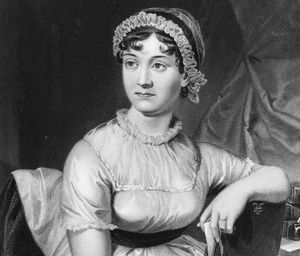In October Flunking Sainthood ran the first part of our two-part interview with Christian writer Philip Yancey, whose new book What Good is God? was published yesterday. This week we follow up with some discussion of his writing career in general, including how hard it is for him to bang out a first draft. (As a writer, I always take great comfort in those stories.)
FS: You describe yourself in the book as an off-the-charts introvert, but much of this book shows you in a very public role, speaking to large audiences around the world. Is the public speaking hard for you?
Yancey: It is true that I’m an introvert. The public part has come over time. I was an extremely boring speaker early on. I would read these long, intellectual essays and people would fall asleep. And then I would attend conferences where people really knew how to speak, like Tony Campolo and Walter Wangerin. From Tony I learned to be entertaining and fun, and from Walter I learned to walk around the stage, tell stories, and not speak from notes. I learned that speaking is its own art form, a different form than writing.
What I have a really hard time with is the 30-second chatting with strangers. That’s where the introversion really enters in. That’s why I’m delighted that my wife is an off-the-charts extrovert. She stands by my side at book signings, and is a wonderful conversationalist.
FS: Well, it’s not like they just want to chat with you about the weather. Because of their connection with your books, people are giving you their very deepest pain. They’re asking you to be stewards of that pain.
Yancey: Yes. They’ve saved this up, and they want to tell me this thing that’s very meaningful to them. You can’t just say “next!” when someone has dumped their soul. That’s where Janet [my wife] shines.
FS: I heard a great story about how you brought this book to FaithWords, and I want to know if it is true. The story I heard is that when you decided to leave Zondervan, you were courted by a number of different publishers, so you asked each one to write a letter about why that house should publish your book. In the end, you received a lot of gushing praise, and just one letter that told you everything the editor thought needed to be improved in the manuscript. And that was the publisher you picked?
Yancey: That’s not quite true. One publisher actually said, “That’s not quite the book that we want. We would like this book instead.” I did not go with that publisher. Joey Paul of FaithWords [part of Hachette] wrote a beautiful essay of four or five pages where he caught the vision for the book. His capturing that vision was really quite helpful in deciding which form the book should take. The Hachette letter not only grasped it but took the book to a whole new level.
FS: Will you stay with Hachette for your next book?
Yancey: They have not done anything wrong to this point! I love the Twilight books. I have not read them, but I love them because they’ve made so much money for Hachette. Unlike other publishers, Hachette is not laying off employees but actually giving out bonuses. The struggle is always to find a publisher who can cross over to both the CBA [evangelical Christian] stores and the New York buyers and New York media. Various publishers have tried, but of all the publishers that I’ve worked with, Hachette has done the best job at being able to reach out to both groups.
I didn’t necessarily leave Zondervan. In the past I had key personal relationships with people there, and those people were laid off in some purges. Zondervan was one of the companies that bid on this book, but their bid was substantially lower in terms of both money and expressed interest.
I really only look at one book at a time, but I am feeling good about Hachette right now.
FS: What will your next book be?
Yancey: I’m working on a memoir now. It’s taken me a very long time, and I’ve read over 200 memoirs to try to figure out how to do it. I’m taking my time and learning a new genre.
FS: I’m interested in your regular writing habits. You seem to be a very disciplined writer.
Yancey: I actually have a whole section about this on the new website Hachette developed for me (www.philipyancey.com). I divide the process into three parts: getting ready to write (40%), writing (20%), and cleaning it up (40%). I find the interview and research process, the first 40%, relaxing and enjoyable. The 20% of time spent composing is all psychosis. I don’t even subject my wife to it. I go to a cabin in the mountains. I don’t shave. I’ll go a week without speaking to a single person, except maybe a store clerk. I work really long hours just pounding out junk. The final 40%, the editing process, is very relaxed and enjoyable, because I began my career as an editor.
FS: When you are composing and trying to bang out a first draft, are you able to turn off that critical Inner Editor voice?
Yancey: I cannot turn off the voice. I force myself to just keep going. The funny thing is that I thought the longer I kept at writing, the more that voice would disappear. Yet at this stage in my career I find the opposite is true; I’m even more critical than I used to be. I’ll think, “What a cliché, you’ve said that before, do you really believe this?” I just tell myself, Keep typing. And I do, even when I have to force myself.

